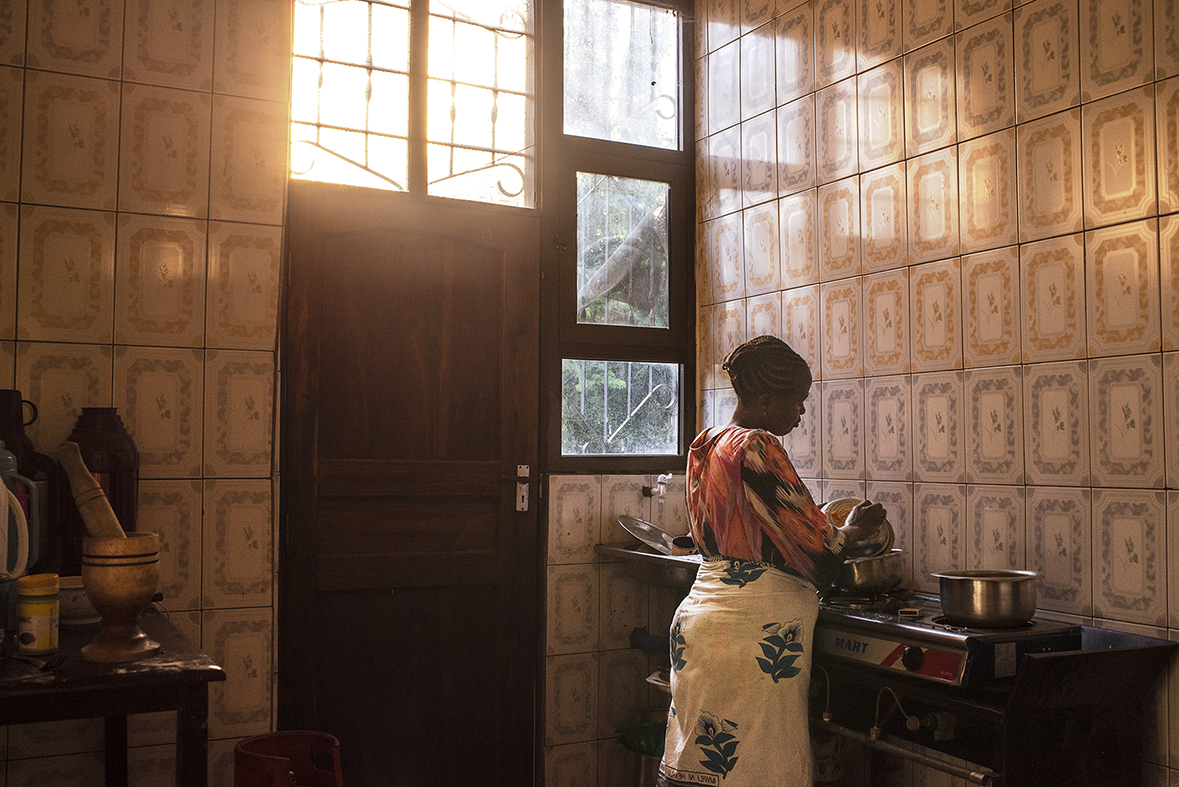
“The women here are so powerful! “
As Rhune is starting to get a grasp of the essence of the House of Hope, here are her first impressions:
They literally dance themselves through despair and together we do the same through the language barrier. I’ve never seen such optimism in such devastating situations. Yet still, the helplessness is inevitable.
The woman you can see in this picture is Lucy.
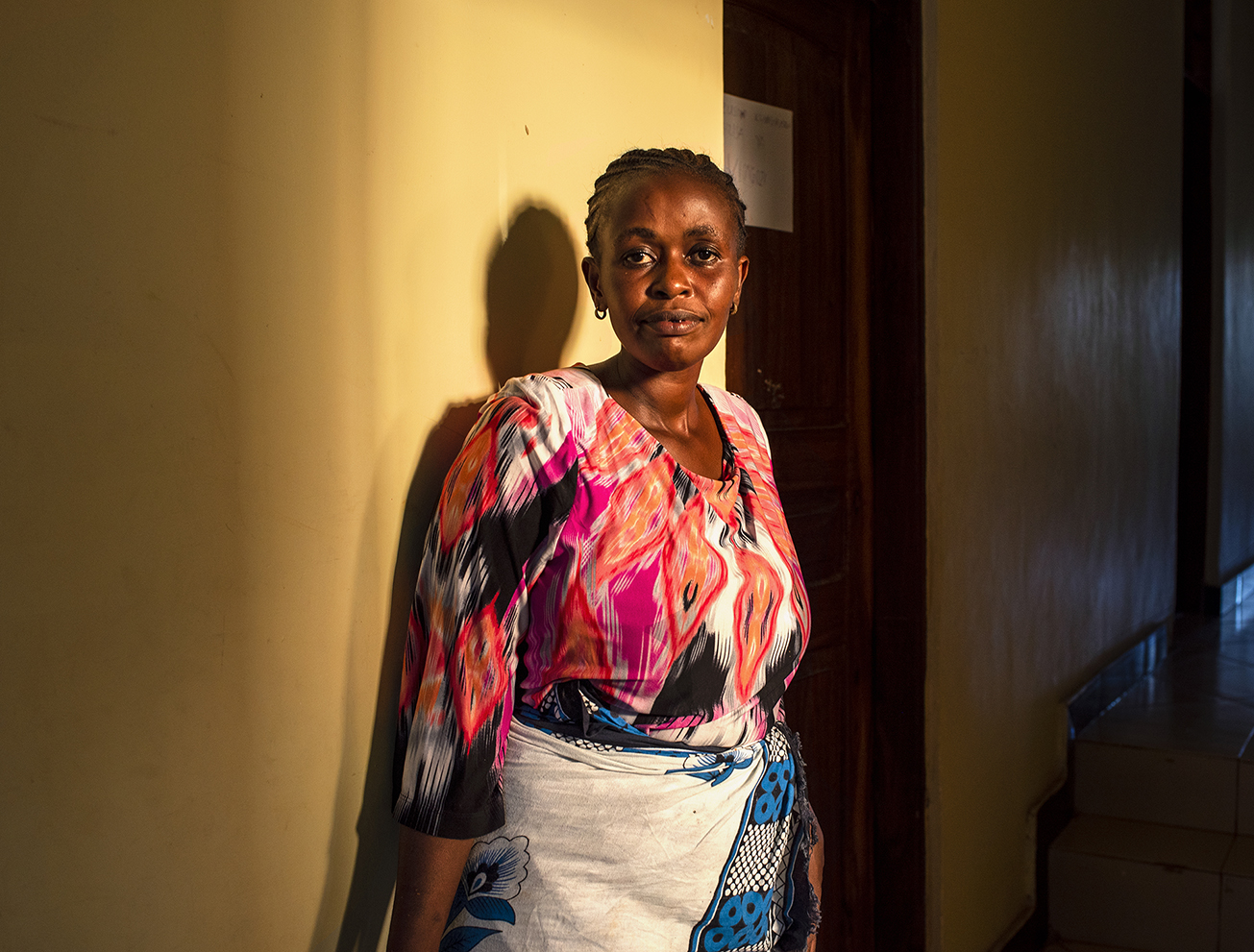 Lucy, huisbediende bij het Huizen van Hoop Kimara
Lucy, huisbediende bij het Huizen van Hoop Kimara
How these women and children get along here is one of the sincerest things I have ever seen in my life. House of Hope makes sure these people don’t have to be handling their situations individually, but instead in a collective way. They find peace and comfort within this small community built on love and trust. They know they can rely on each other because they’re in similar positions. You can feel the sadness and the grief yet still you feel sparks of hope and joy. They are all dancing and singing, eating and sleeping in shared spaces. That togetherness is something I’ve never felt so strongly like I am feeling it here.
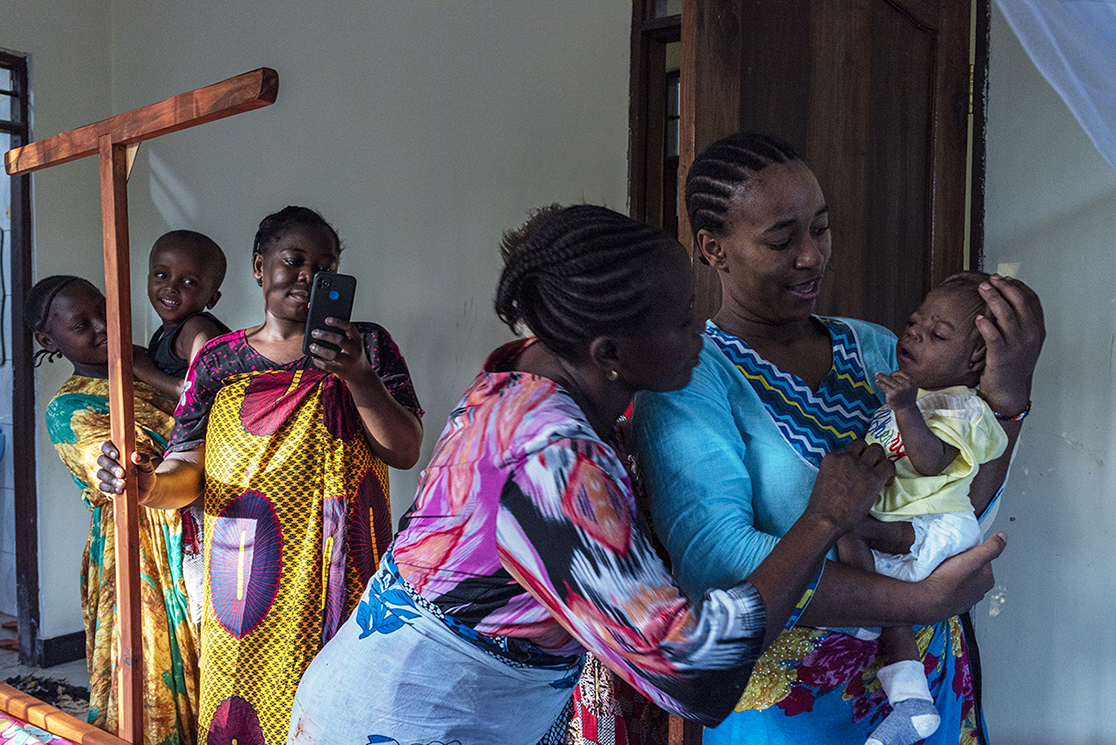
When asking these women how they are feeling within and about their situations they will often reply through their beliefs that God has all the answers and everything is as it should be. To know that help is possible and some things could change structurally but just don’t happen saddens me, yet knowing that we as people could be God too if we just open our hearts and use our empathy to create a nice living for everyone is hope-giving to me.
These women often go to church, relying on it, hoping that this will mend their situation and truly believing in it, which is beautiful indeed, but belief alone isn’t enough to take care of these situations. There is a need for financial support and that needs to happen externally, there’s a need for change and that is also what these people can’t do on their own.
“Indifference is the biggest crime you can commit”
Like they believe, I too do believe that we as living and conscious beings are capable of giving love, being empathic towards our own kind. I believe we can find happiness when we all are given equal chances and try to reach that point collectively.
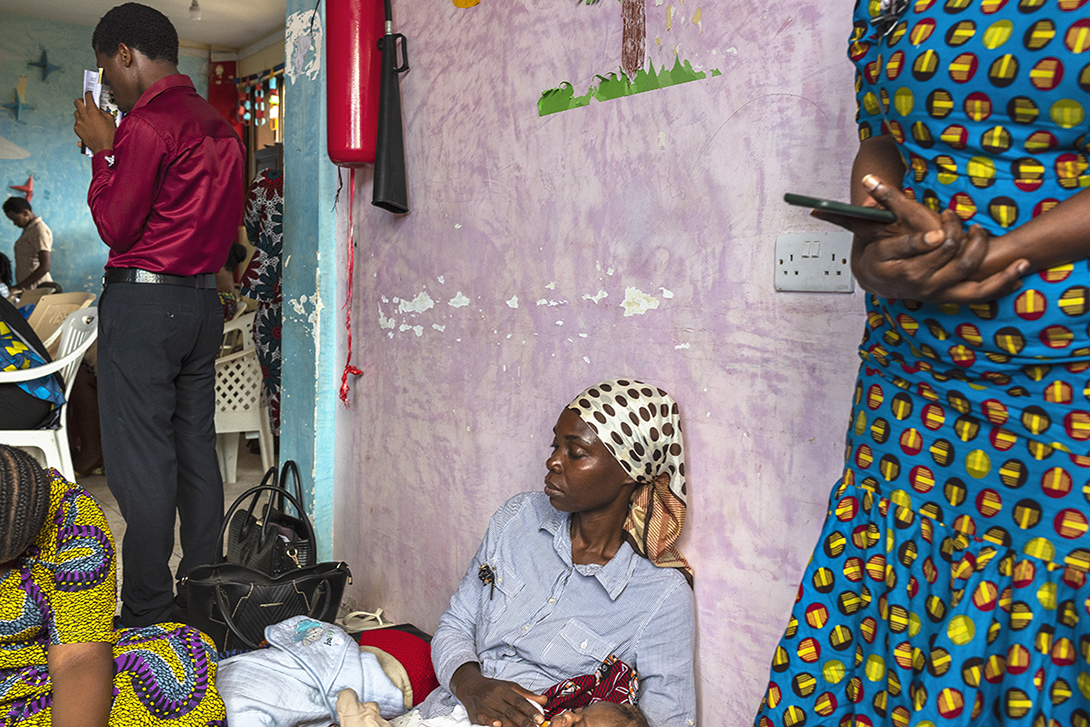
Many of the women who come here often have been abandoned by their husbands. Unfortunately, this is not an exception. Because of their child having spina bifida, and/or hydrocephalus, they are often both rejected by the family, as they are labeled not being functional, which leads to them being invisible in this tragic situation.
These women, who often already have little or no financial provision, then carry both the emotional and financial pressure with them. Even though they try to do everything so that their child grows up in the most pleasant way, they still live in uncertainty and misery. In a House of Hope, they are offered an emotional and financial support so that they can still lead a dignified existence. A House of Hope shows them that they are not alone in the world. They see and hang out with other mothers, and together, they strive for better future.
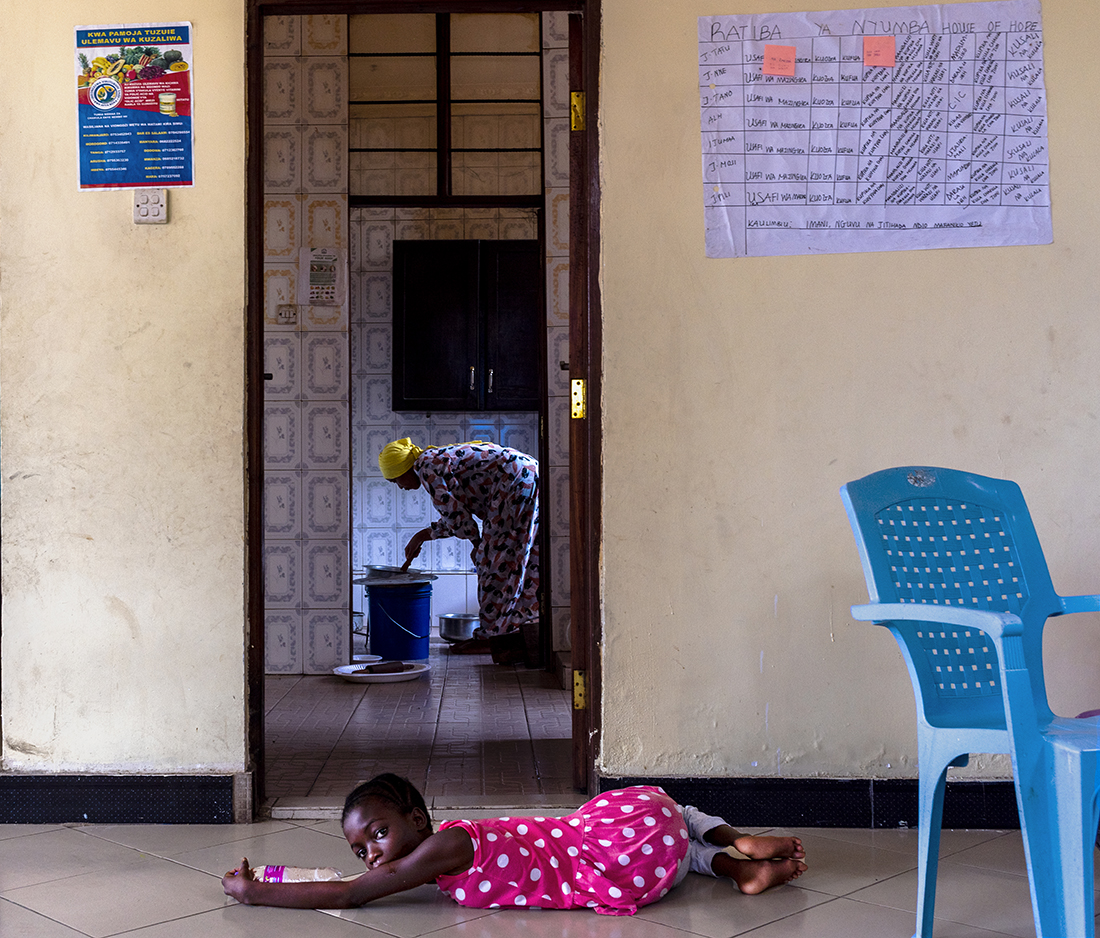
In this photo you can see Rowrly and Merrie during the moment when we are on our way to the sea. Some days, House of Hope ensures that everyone can go out for a day together to get away from the daily grind. In this way they can lighten the heaviness together and not be constantly confronted with their situation. It was very nice to meet them in a different way. Who they are when they genuinely enjoy themselves and let go of everything for a while.
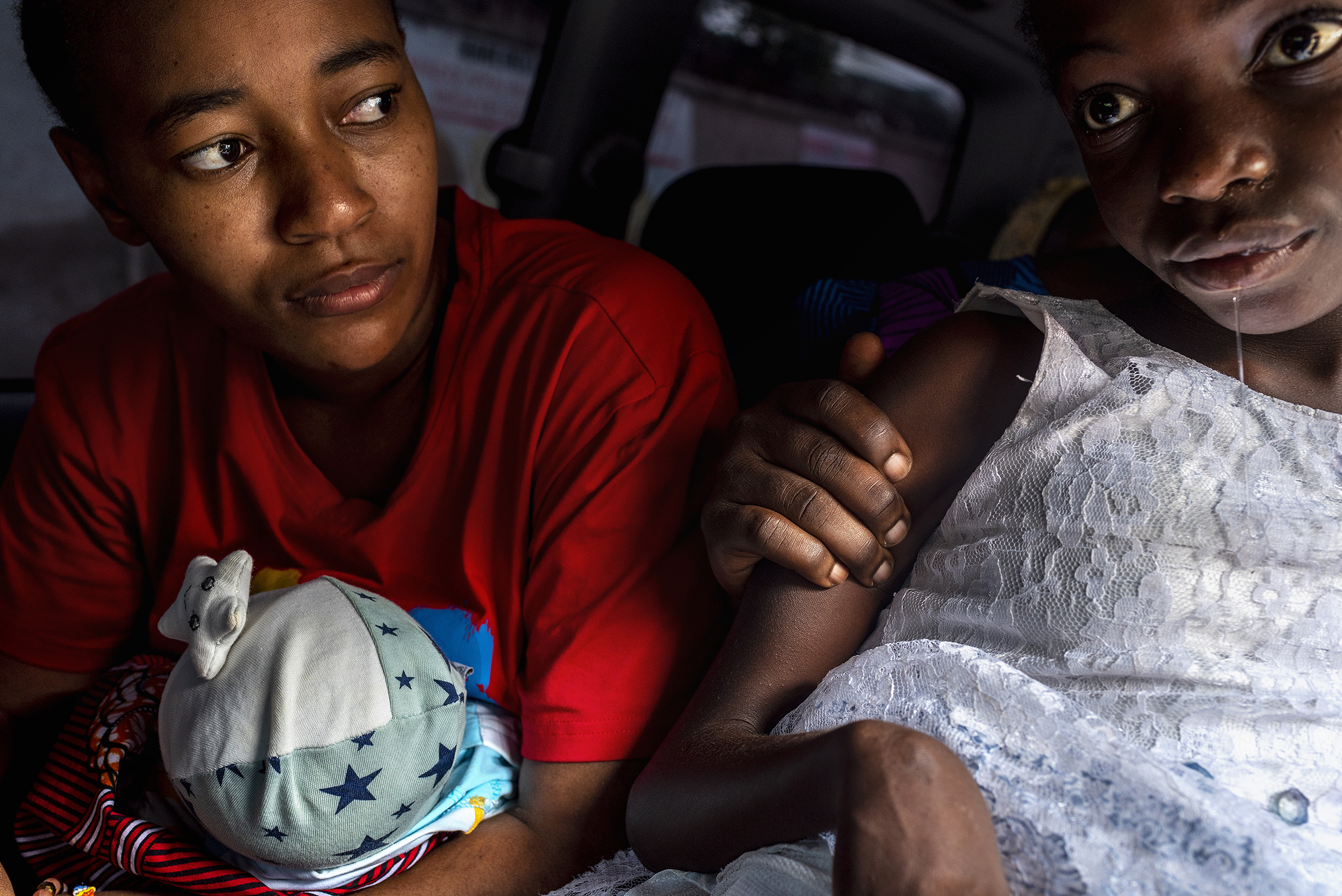
Papa, où t’es ?
Spaces occupied with rows of beds in which I see moms with their sick children, or sick children lying alone. Often they are there for days or weeks.
While I am here I can only ask myself why I don’t see any fathers. I try to hope that their absence is just the coincident result of me coming at this specific moment, but I highly doubt so, and it breaks my heart.
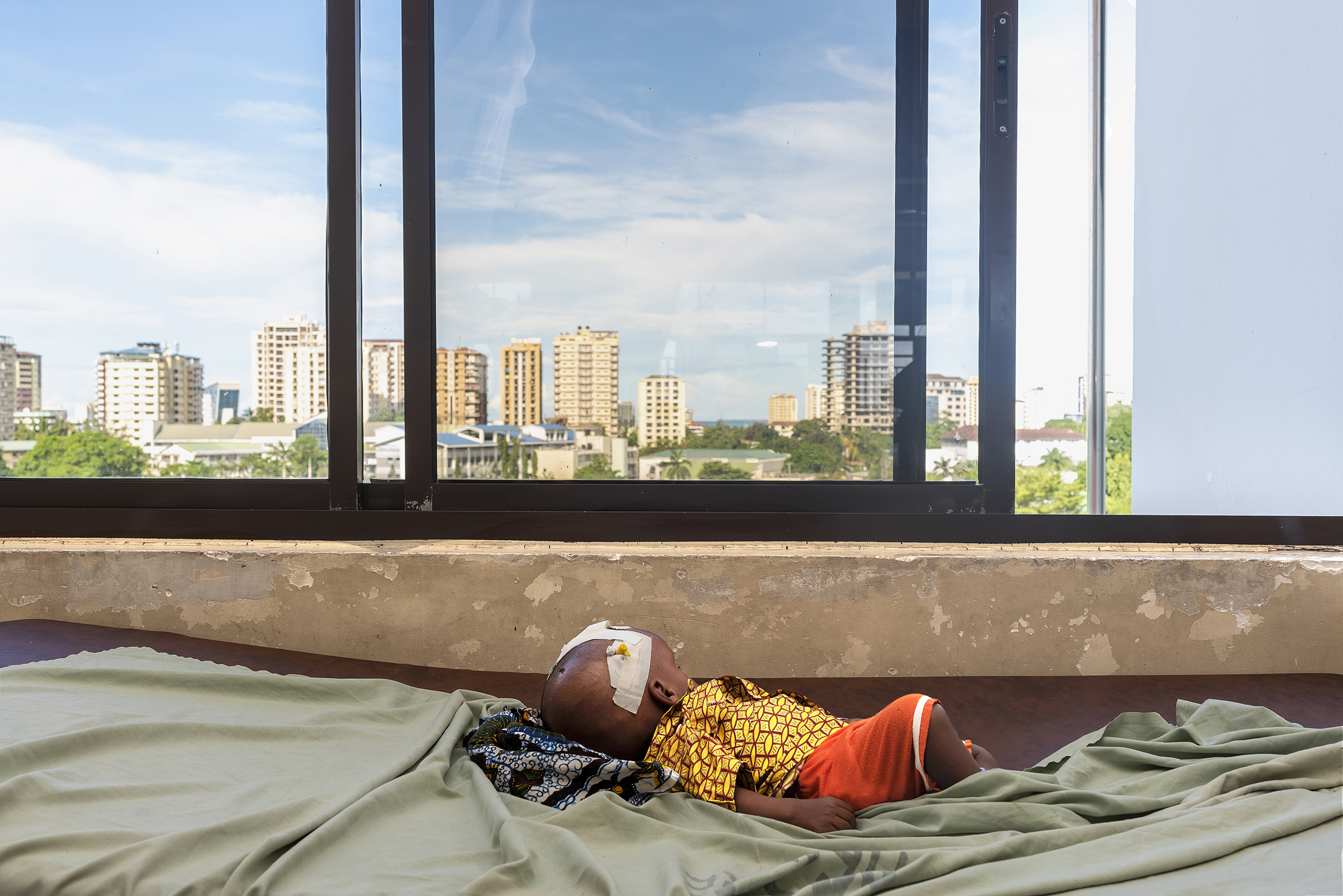
Only mothers with desperate faces who on the one hand stare far into the distance or on the other, with their face full of love but desolation directed towards their child.
I can’t imagine what it’s like to live in this state of constant panic, to wonder what the future of your child is going to be like, to wonder if they even will have a future.
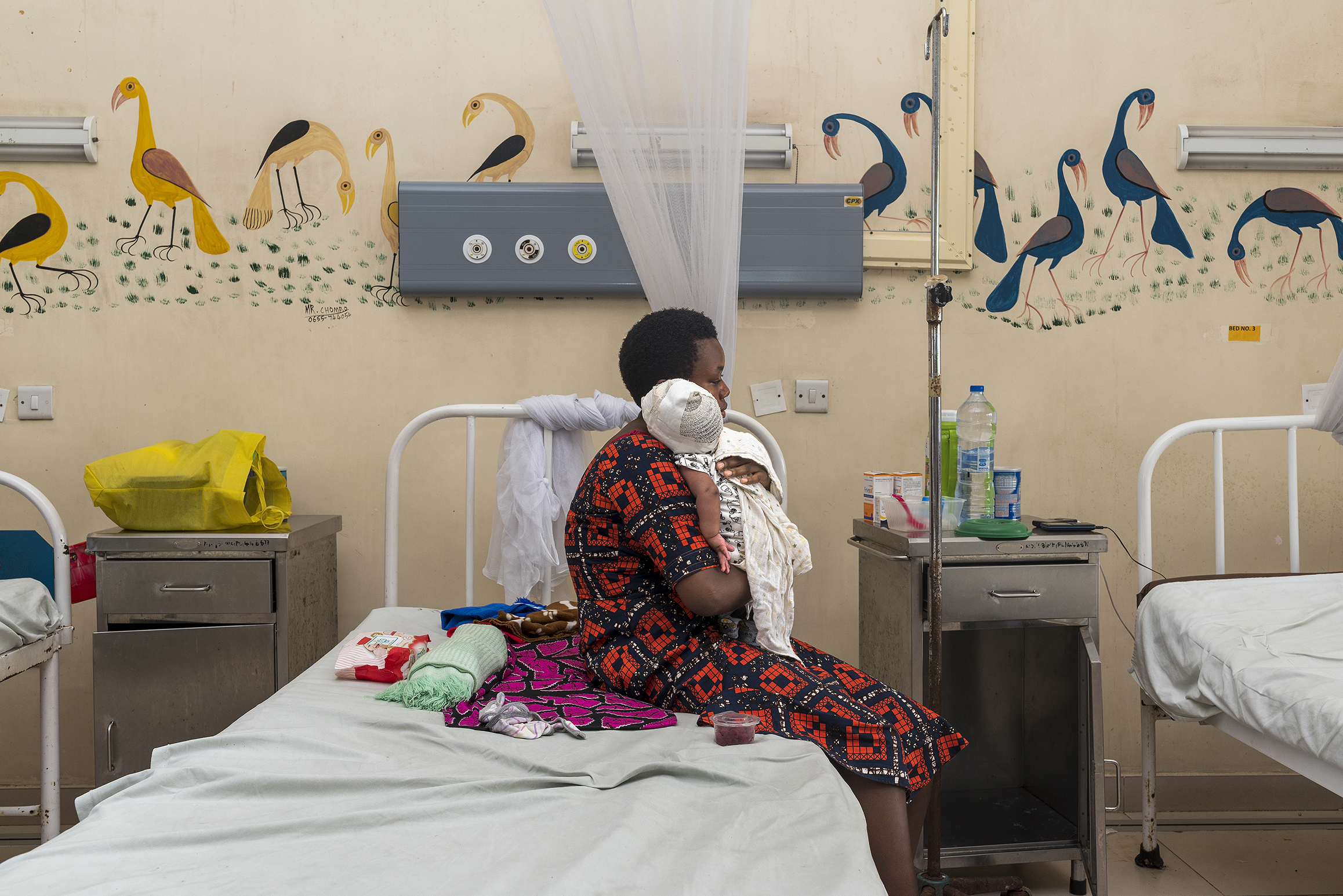
This room is quiet and breathes grief. I’m not hearing any laughter nor even the sound of people talking.
When I left I’ve absorbed the atmosphere.
I can only think about how powerless I feel towards this situation and hope that people will ever hear the voices of these mothers. No matter how far away they may seem. The voices are in fact so close and hide in our humanity.
Despite the fact that everyone lives together in a harmonious way, you often sense a lot of boredom from the people who stay here. You don’t have to do much to make the people here happy. A couple of days ago, a quiet boy, Michael, had said that he liked to play football. Building on that, I went to the market and bought a football hoping that I could bring some spark into their lives on a small scale. When I got back there and when Michael saw that I had bought a ball he started to cry. He couldn’t believe I actually bought them a ball. This ball, which means nothing to me financially, changes the entire day of the people here. That evening we all played football together, laughed a lot and during the remaining time of my stay in Kimara I could still hear the ball bounce in the garden from my room.
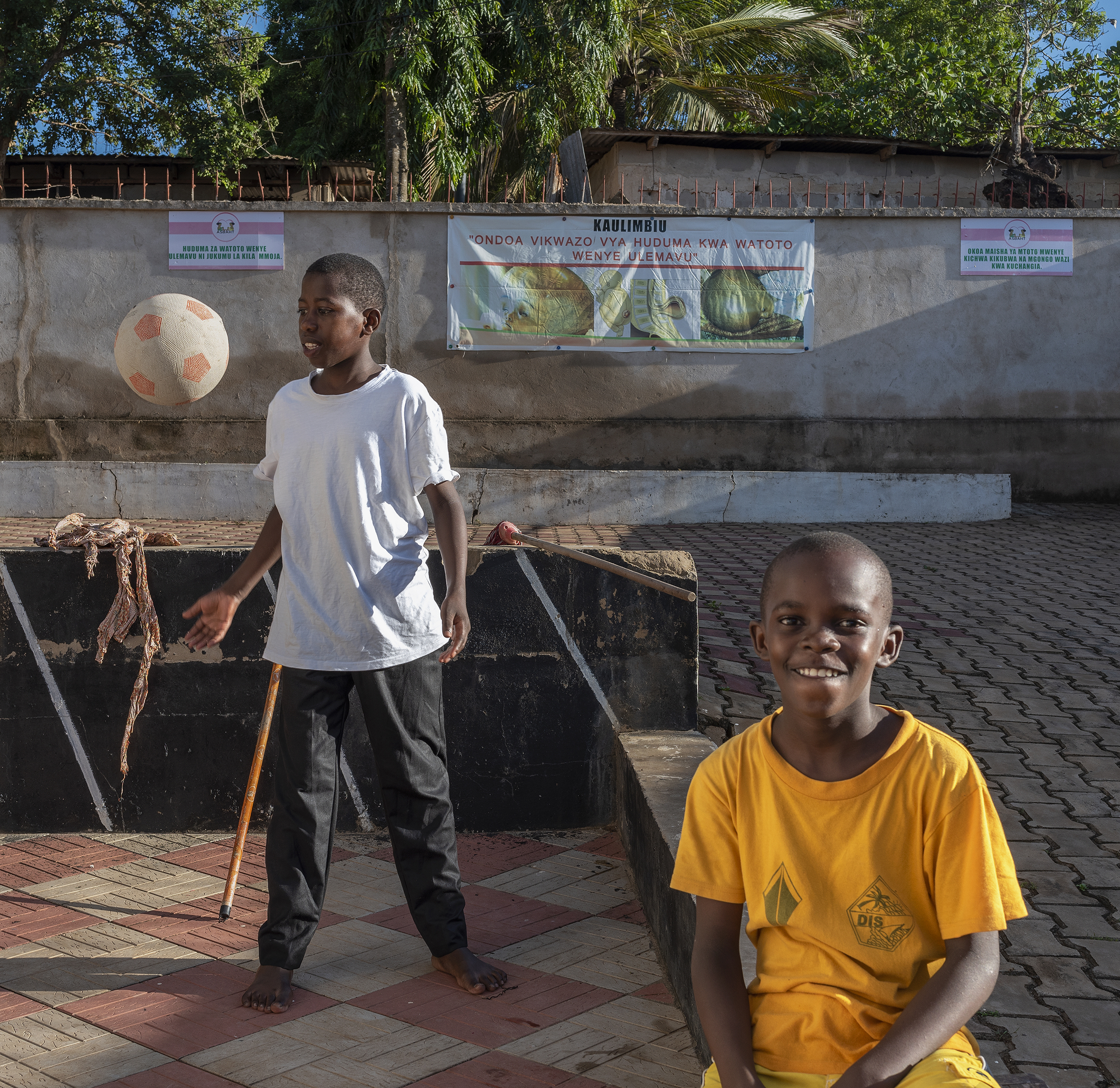
Classrooms and shelter in the middle of the jungle.
When I got there I automatically got a calm feeling over me. I was warmly welcomed by children who passed by the car and by the employees who did their best to show me around the campus immediately. At this place, children with disabilities are taken in, including children with Spina Bifida and/or Hydrocephalus. They are all taken care of and they can all live together.
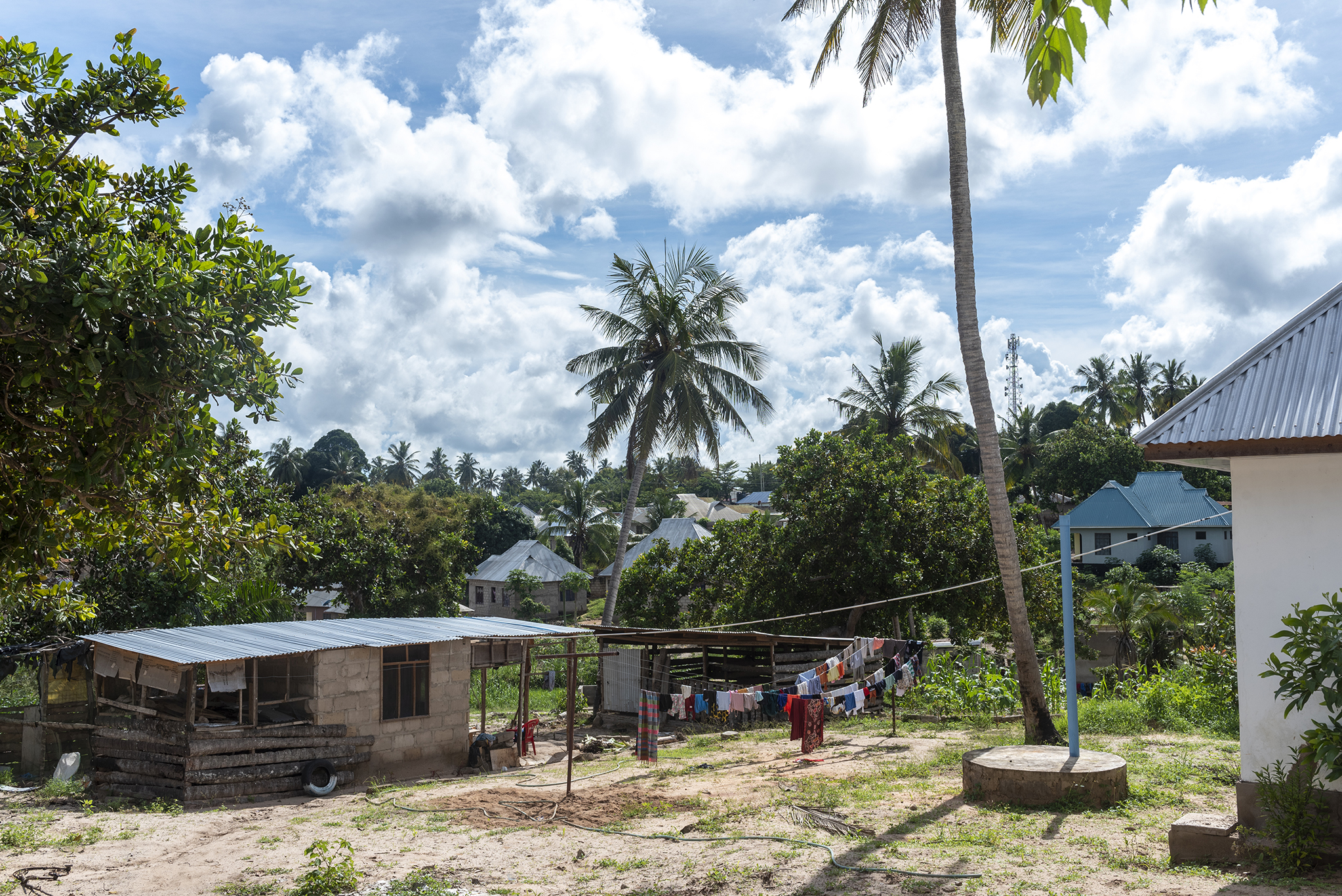
They can follow lessons here unhindered, from the teachers (who often come to work here voluntarily) and from each other without being excluded by the rest of society, as often happens. Here they are accepted and learn to function with themselves, each other and their disability.
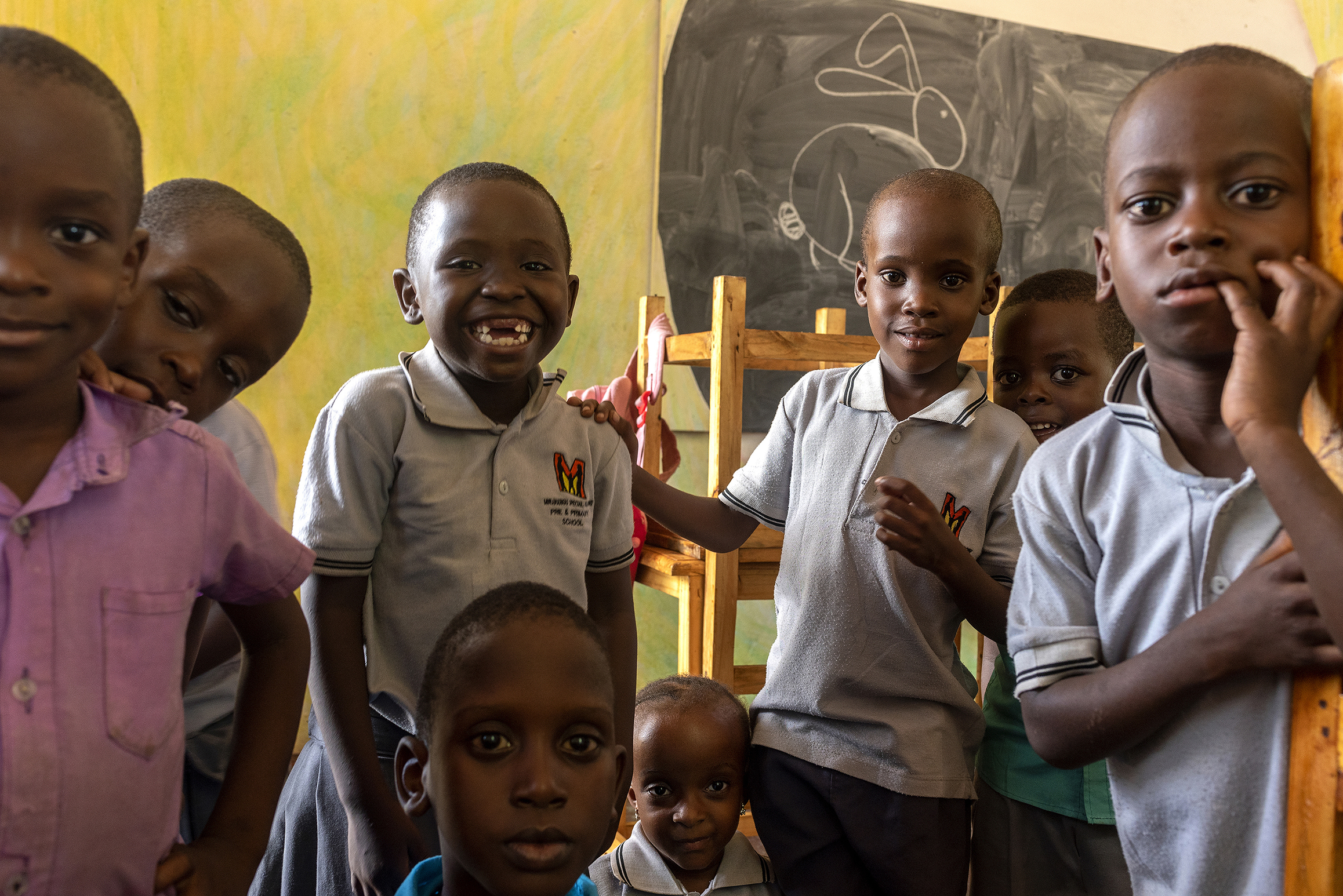
Volunteering here is worth it
Sarah, a 20 year old girl from Berlin came here to do volunteer work for 4 months. She teaches the children without any experience as a teacher. Nevertheless she does a great job. She dances (all children and adults here are born with rhythm in my opinion) and plays with the children, using expression and color and doing everything she can to give them the opportunity for education, fun and togetherness
Both here and in House of Hope there is a strong need for volunteers. Not only is it a help for the children themselves, but also for you (possibly hehe) as a volunteer yourself because you gain new and irreplaceable experiences. I notice from myself being here that my purpose in life is evolving a lot. By offering help you realize how nice it is to help, by offering others opportunities you offer yourself the chance to develop in your humanity.
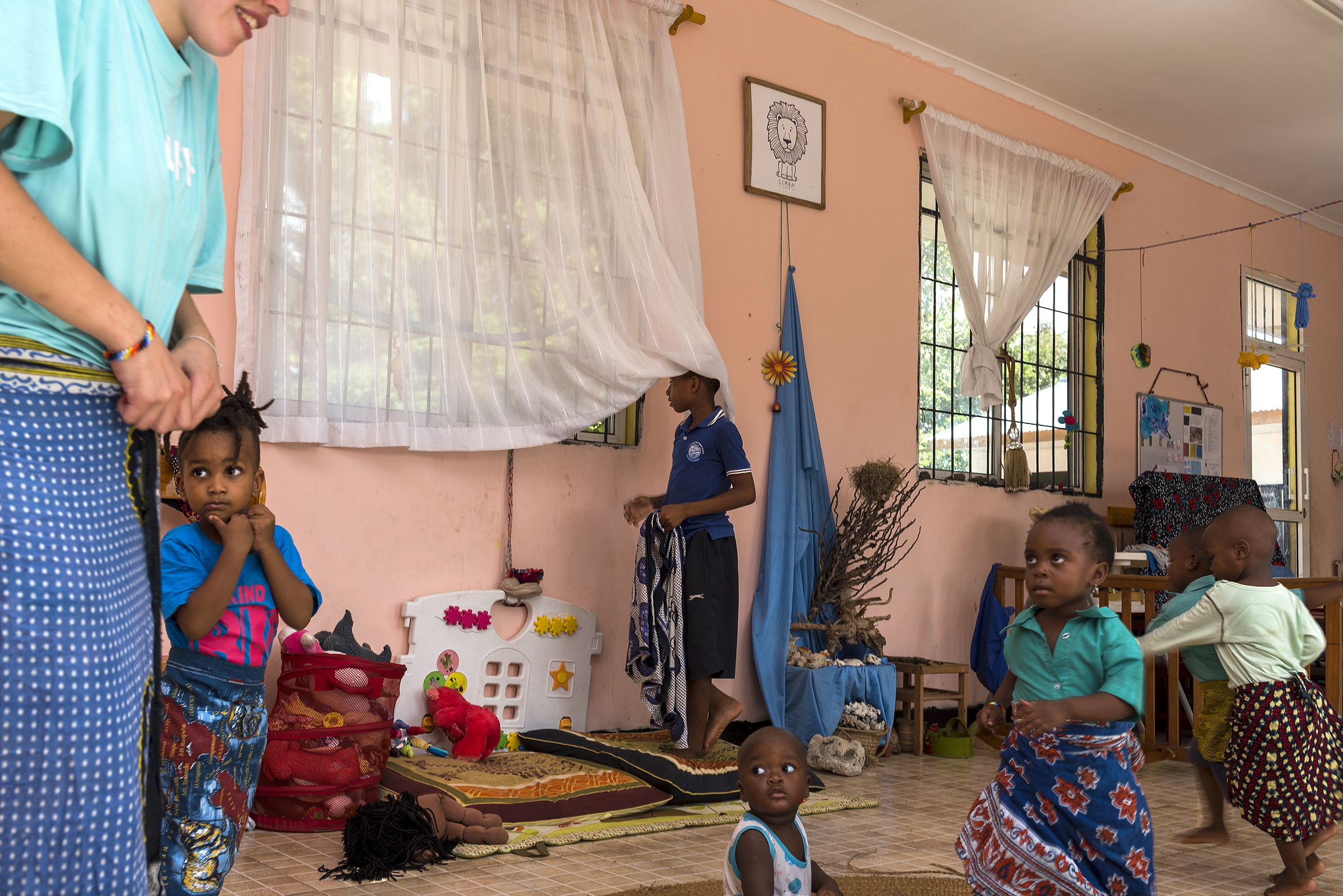 Sarah, a teacher volunteer with children at Development Tanzania - school for children with disabilities
Sarah, a teacher volunteer with children at Development Tanzania - school for children with disabilities
A different life
During cooking, the women ensure that all children can eat in the morning, afternoon and evening and provide themselves with the vegetables that they grow on the farm with the children using principles of permaculture. On this farm, the children learn how to deal with plants and live a self-sufficient life. I notice how much the children know about life around here and that is largely due to the experience they gain here. They then sell part of the harvest they receive so that they can sow again with that yield and generate more for the school.
Family and teamwork
I was allowed to stay with Janet and her family for a week in their house, which is located in the middle of the campus. Janet founded all this here with her husband, Walter. After seeing a lot of misery, she felt the need to do something good for the world. All her children help with the daily things on campus. They clean, take care of the children, teach/follow lessons themselves. I immediately felt at home. How everyone here treats each other so caringly is something I want to keep and take home and into my personal life.
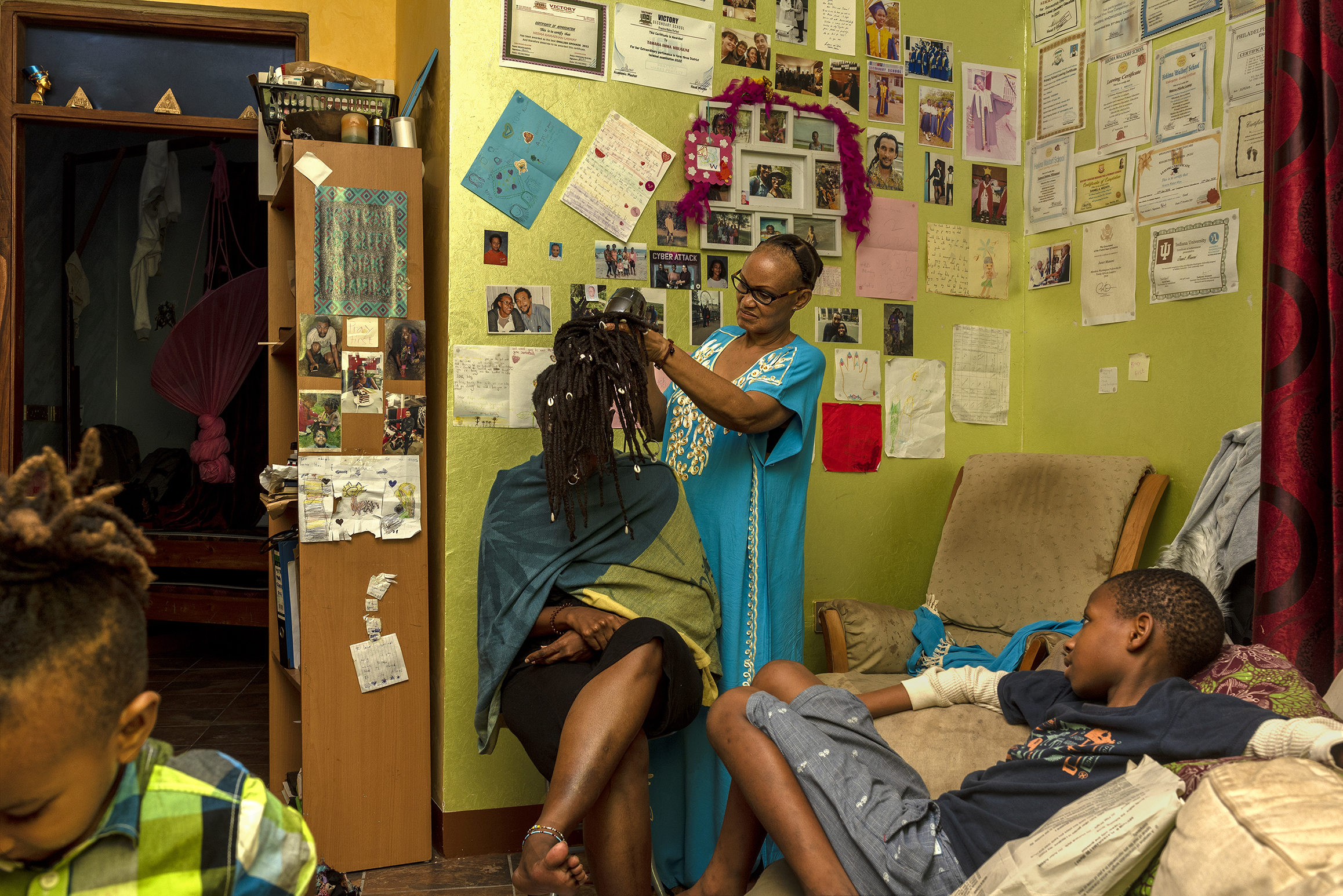 Janet's family
Janet's family
This is Meshack Dotto
He is among the new recruits at the school. He was found on the streets of Dar es Salaam where 2 older men were using him to beg for money from region to region. He was never taken to school. The 2 men took him from his village as a source of income for his family back home. We don’t know his actual age nor do his parents. He has no memory of his hometown as he was taken a long time ago. He started living within the campus in August 2022, and is a permanent resident at the school.
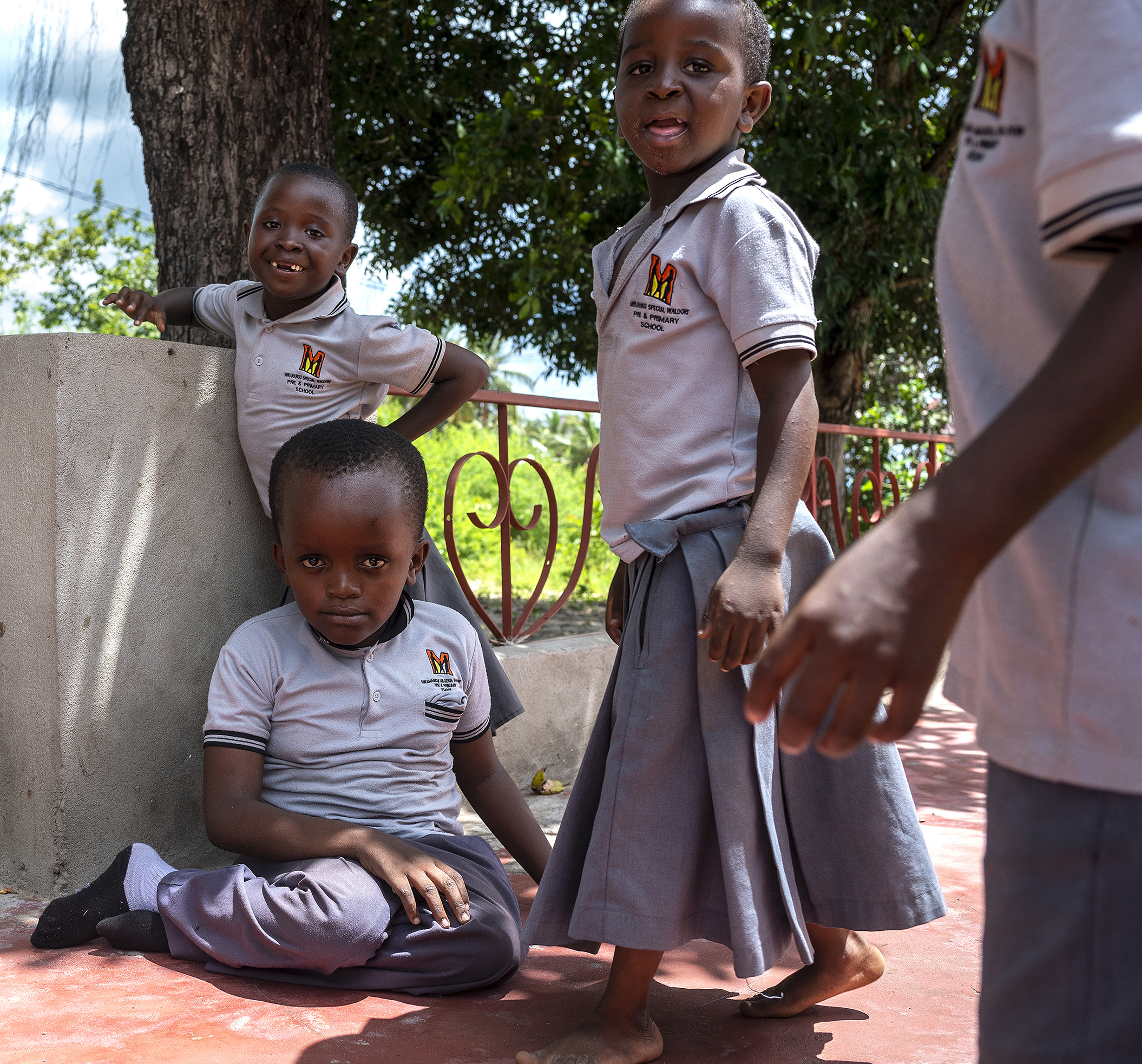 Meshack Dotto (left, sitting)
Meshack Dotto (left, sitting)
In this picture you see Faraja, she is 8 years old and has Spina Bifida. She was treated in Bugando, Mwanza and has been in Vikindu since the campus was established in 2018.
At the time this photo was taken, she was being helped by Gwantwa, who takes care of the CIC (Clean Intermittent Catheterisation) for children with Spina Bifida. Because children with Spina Bifida sometimes defecate uncontrollably, a room has been provided here in which a nurse helps the children in time so that they don’t feel uncomfortable. Here they are also taught how to deal with this themselves so that they can take care of themselves with the desired privacy.
All medical materials used are donated by Child-Help.
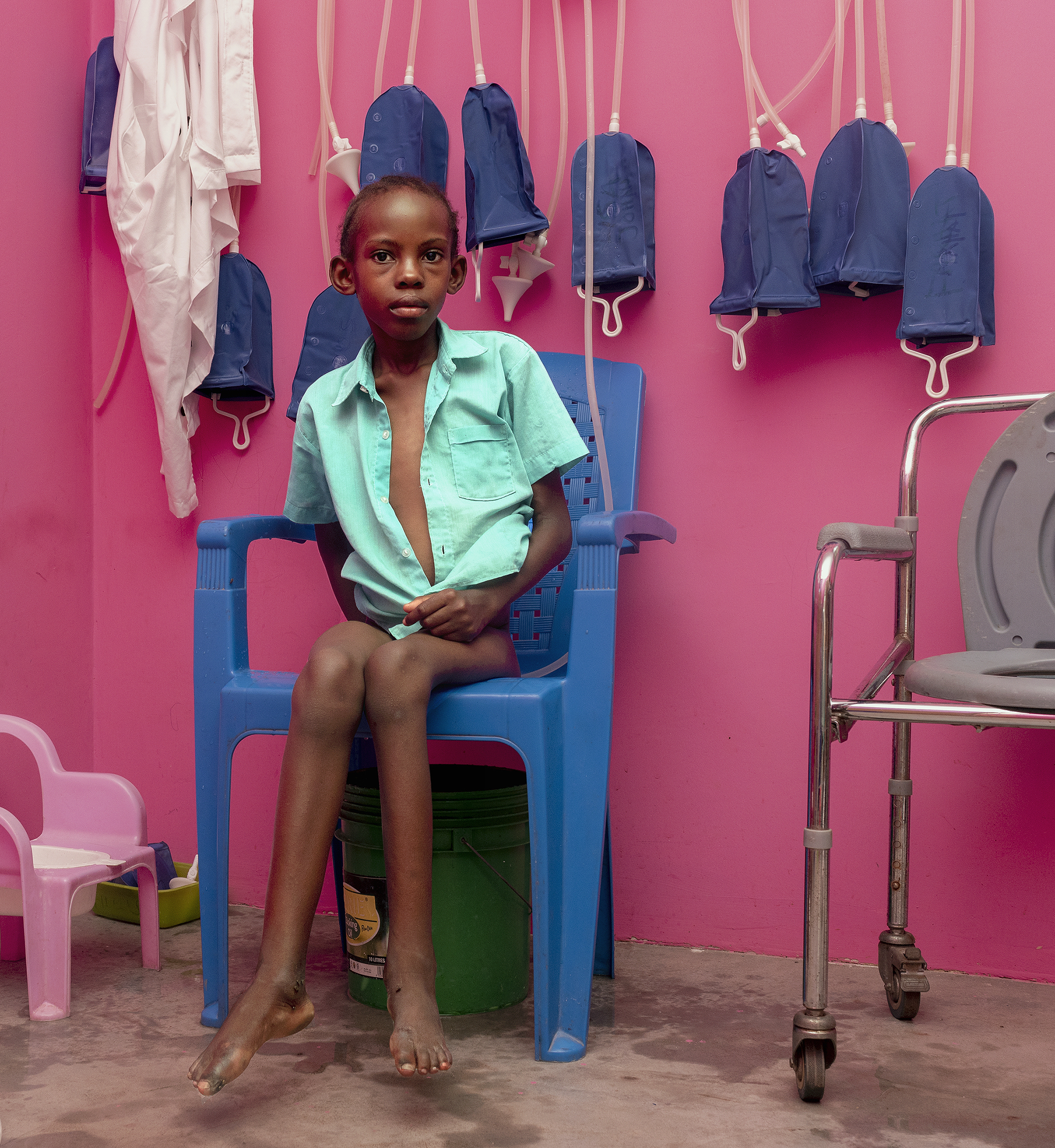 Faraja in a room dedicated for CIC
Faraja in a room dedicated for CIC
The child you see in this photo is Karisma.
She has hydrocephalus. Janet and her husband found her while selling cassava on the street with her mother. They took her in and she has been going to kindergarten in Vikindu ever since.
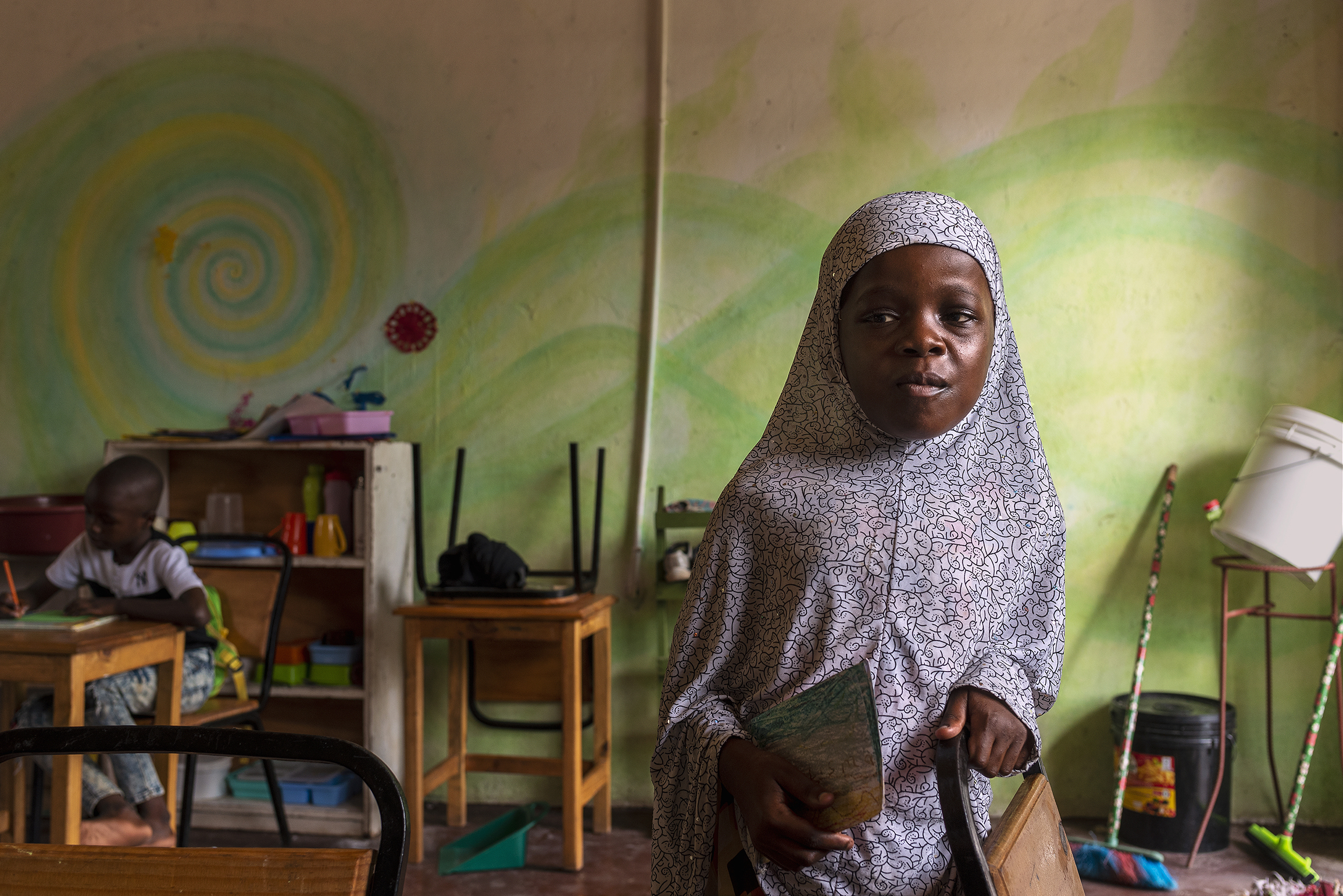 Karisma at the kindergarten
Karisma at the kindergarten
House of Hope Zanzibar
Wrayda works as a house manager in the house of hope Zanzibar after people contacted her because she, herself, has a child with hydrocephalus and therefore knows what both the child and the mother need.
During our conversation she starts to cry and immediately wipes her tears because she is ashamed of it. I tell her that it is important that she lets go of her emotions and that her feelings are valuable. She replies that they don’t usually do that here, that it’s one of the few times she talks about her situation in this way and that she thinks it’s strange that she can do it with me. It has struck me more than once since I have been in South Africa that mental health is not a primary part of existence.
She, as the wife of a child with this disability, keeps everything to herself. She feeds her child on a big smile and does what is expected of her in this society.
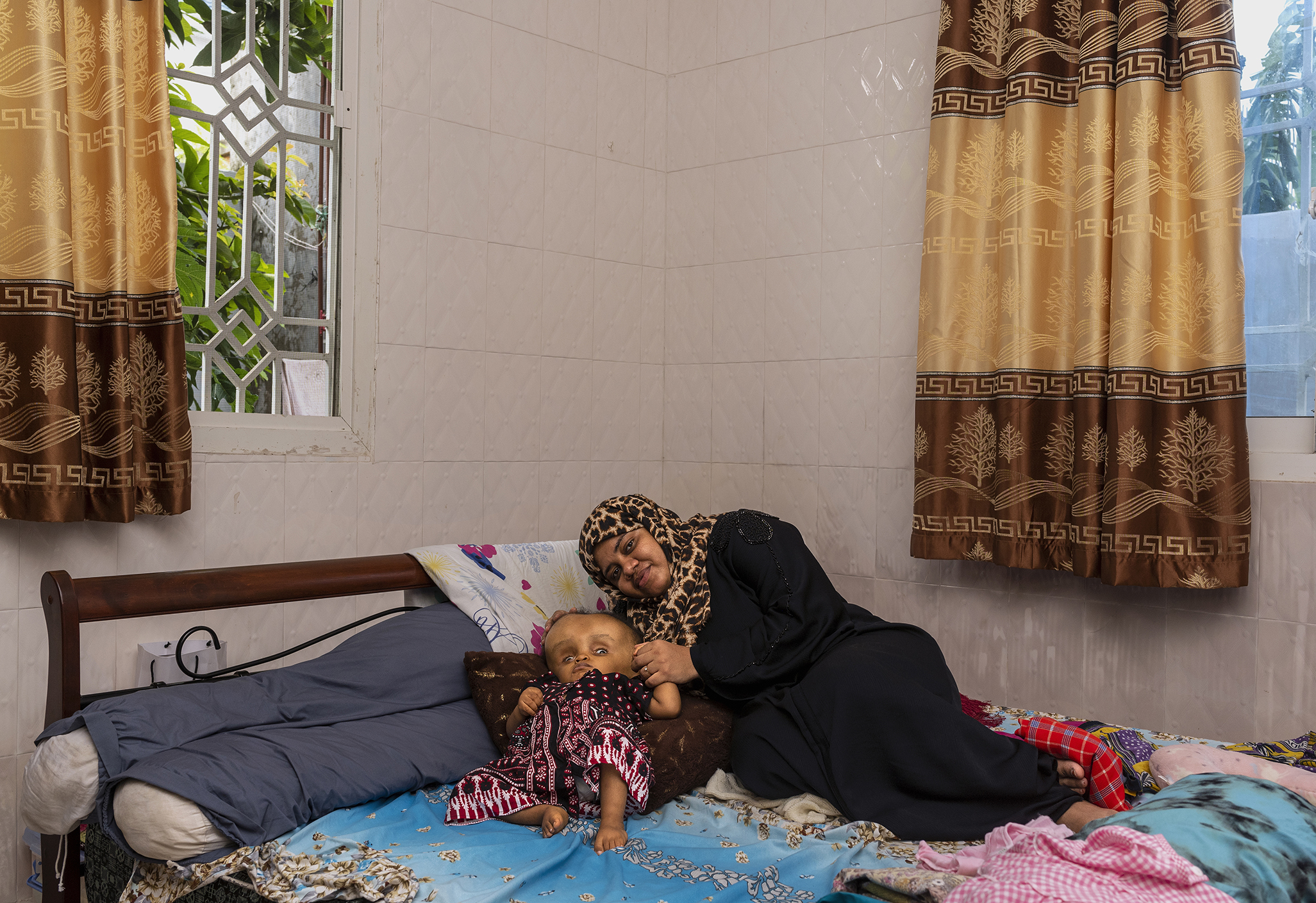 Wrayda, a mother of a child with hydrocephalus, and a manager at a House of Hope Zanzibar
Wrayda, a mother of a child with hydrocephalus, and a manager at a House of Hope Zanzibar
Nurse administering painkillers to a baby (just being operated on) after severe shooting pains in Zanzibar hospital.
Child-Help supports the hospital costs, and checks and ensures that women in poor situations can also be helped and that the children can receive medication.
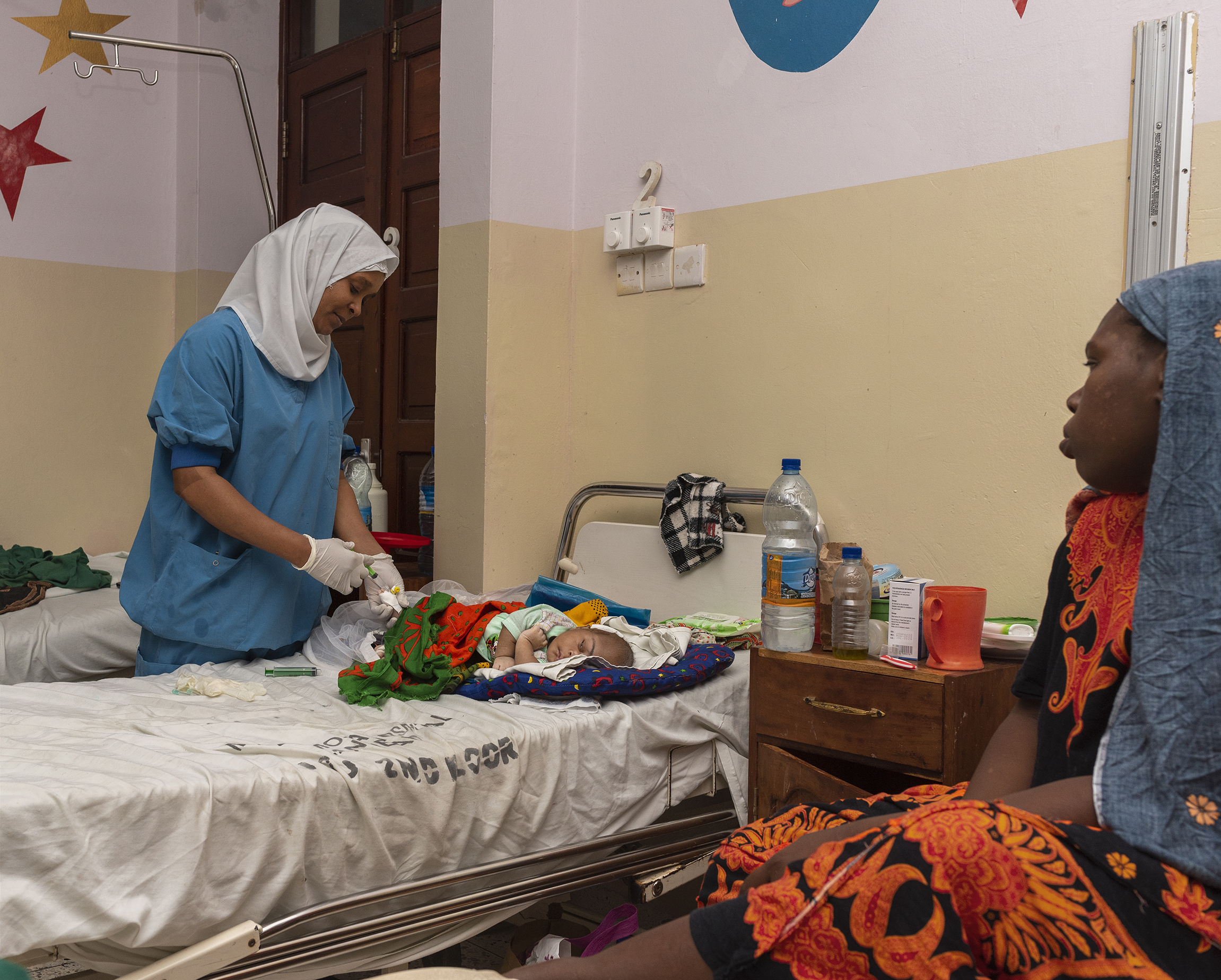 Nurse giving painkillers to a baby at a hospital in Zanzibar
Nurse giving painkillers to a baby at a hospital in Zanzibar
A separate room in the House of Hope Zanzibar for mothers, fathers and their children.
Hussein is one of the employees of House of Hope Zanzibar and has a child with Spina Bifida. At House of Hope, they ensure that all employees have experience with the disability, which allows them to better understand the guests and provide the right care. Hussein took me everywhere this week and does everything he can (and sometimes forgets to include himself in this) to make other people feel comfortable.
Every evening he visits the women in the hospital to see how the mothers and their child are doing. During this visit he always brings presents. I don’t know if this is part of his job, but I do know that he does it every day and enjoys it. It strikes me how involved all the employees are here and how much they want to make sure everything feels comfortable for everyone.
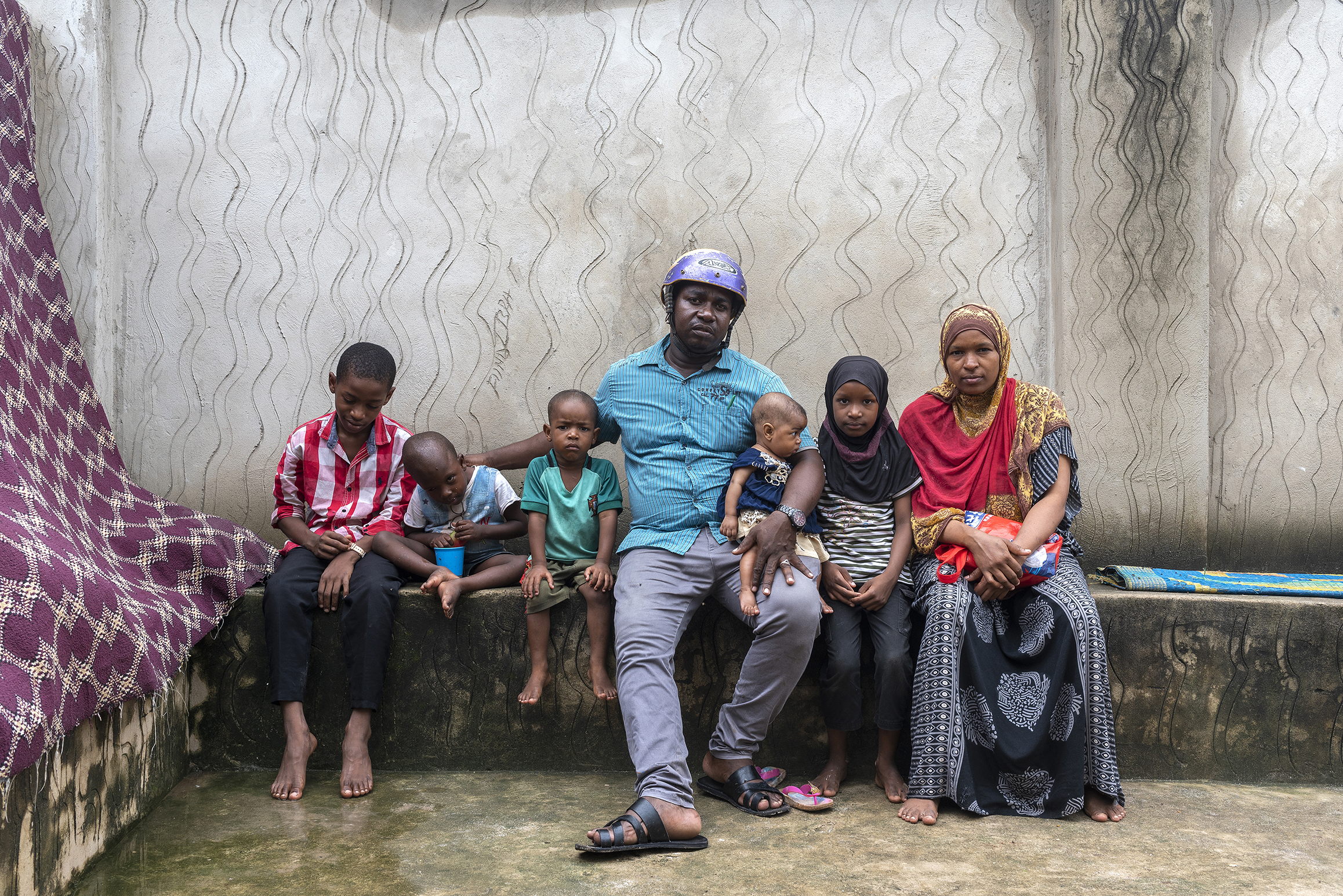 Hussein (center) and his relatives
Hussein (center) and his relatives
Leave her behind!
In this picture you see Aida Ali and her child Fatma (6 years old)
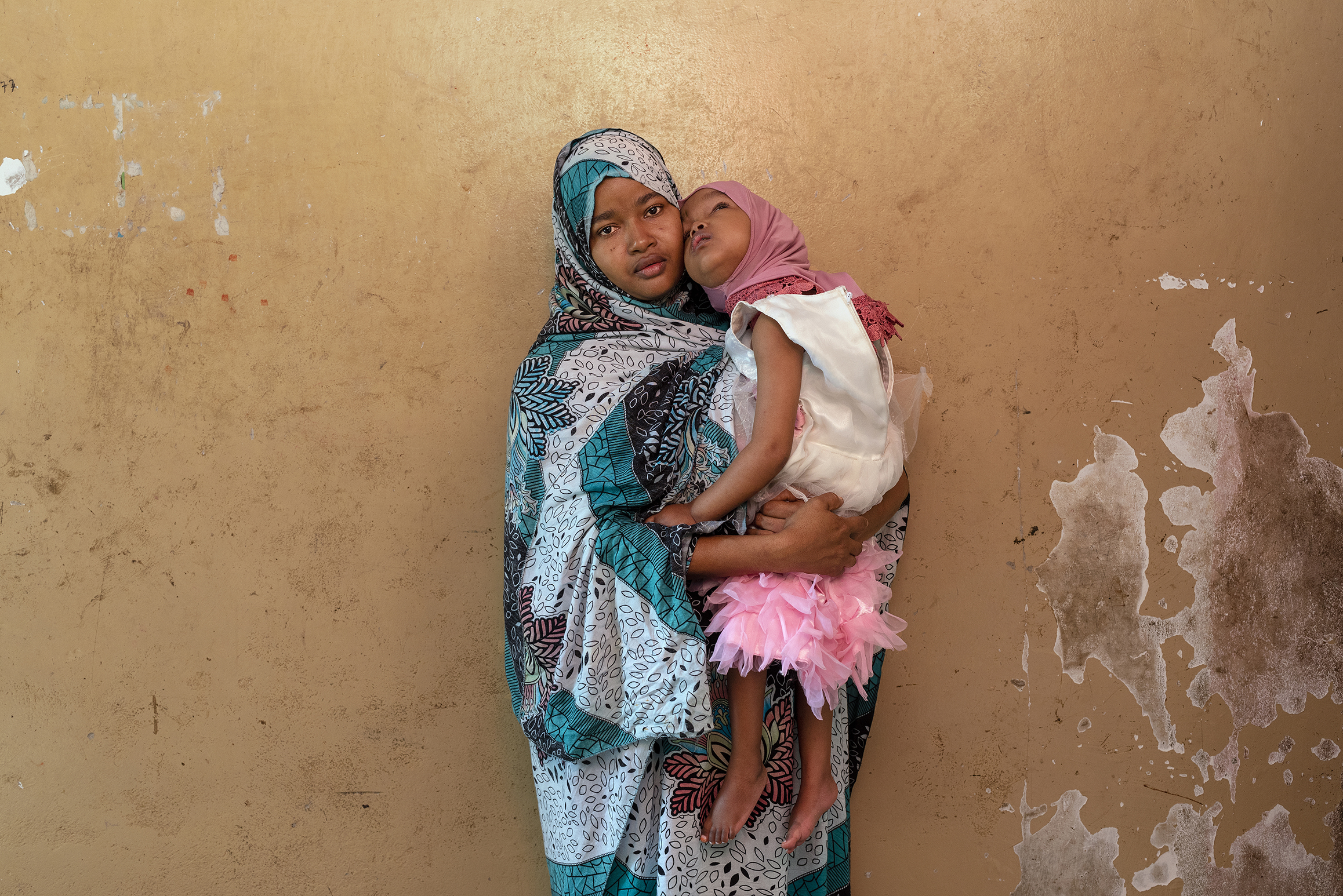
Fatma was born with hydrocephalus. When Fatma was born the in laws from Aida were telling Fatma’s father that he needed to divorce the mother as they were convinced by their own beliefs that if they’d get more children they’d also be born with other disabilities. They kept making excuses and the mother got her divorce in the end during her child’s treatment in Mnazi Mmoja Hospital. Aida comes from a very poor family in Pemba (a part from Zanzibar) after the divorce things became really hard for her, raising her disabled child on her own. (which she has been doing for nearly 7 years now.)
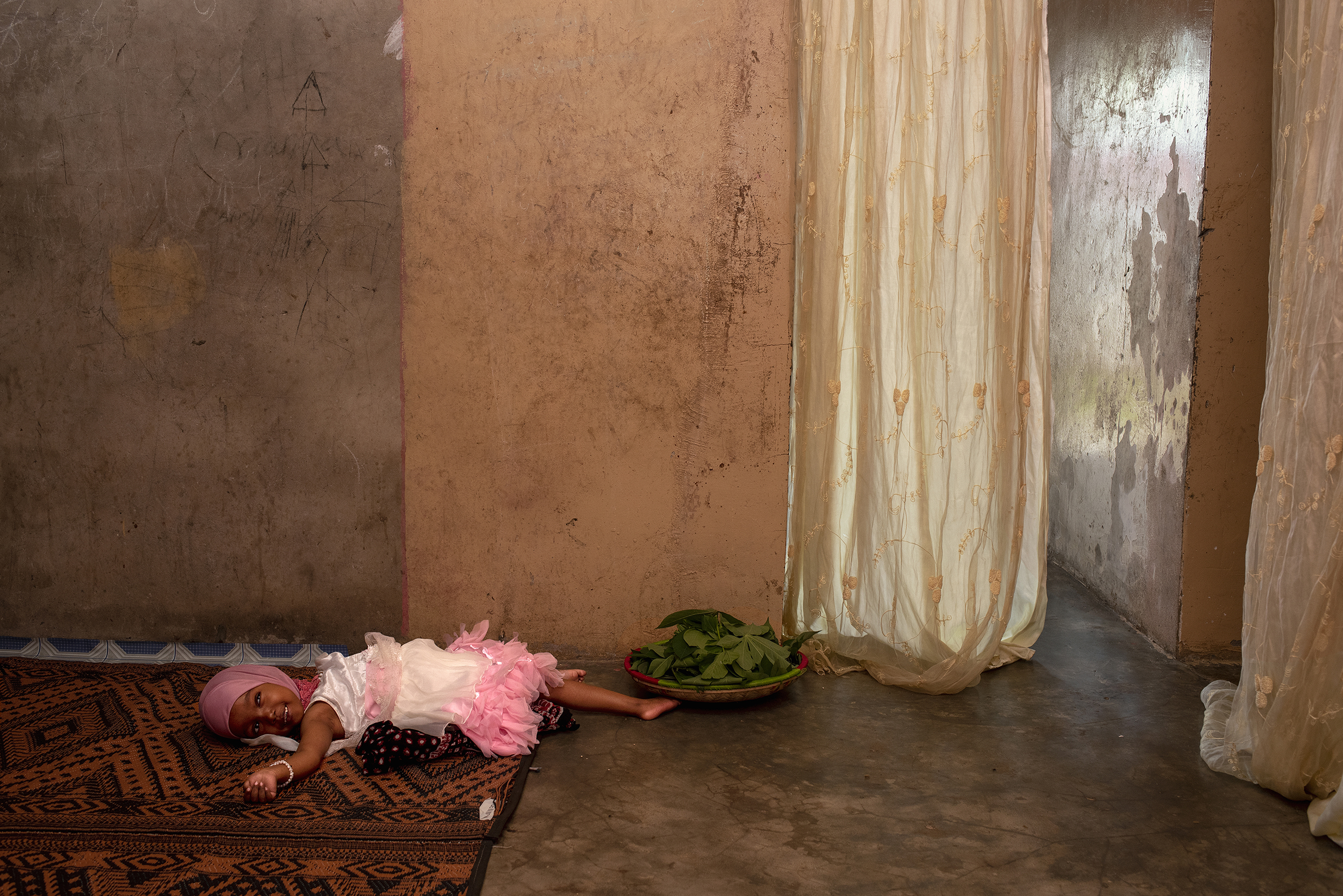
The people from House of Hope Zanzibar found her during a home visit in a very bad shape were even the grandparents believed she wouldn’t make it through another day. HoH Zanzibar decided to take Fatma to Unguja and she stayed in this house for more than 1 year. Now she is doing alot better, she’s smiling and eating but emotional and financial help is still needed.